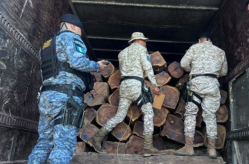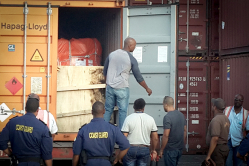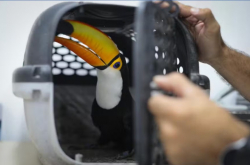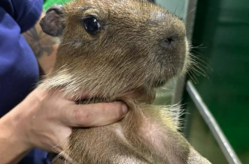Agrocrime poses a multilayered threat to human health, wellbeing and economies. Resilience against such crimes requires a one-health-approach through cooperation between law enforcement, veterinary services and other relevant agencies.
Working definitions
Animal Agrocrime is an unlawful act or omission concerning animals or animal products that violates legislation, and has negative consequences on animal health, animal welfare, public health, food safety, food authenticity or national security.
Agroterrorism is a subset of agrocrime. It can be understood as terrorist attacks directed against crops and livestock, to disrupt a population’s economy and food supply.
The spread of diseases in animals
The deliberate release of biological agents is perhaps the best-known challenge for law enforcement when it comes to the spread of infectious diseases.
However, law enforcement agencies also have a role in countering crimes that contribute directly or indirectly to the spread of diseases.
Such crimes are wide-ranging. Some may be small in scale and local, while others are widespread and driven by organized crime groups.

The negative impact
Animal-related crimes have the potential to spread animal diseases – either accidentally or intentionally – among wildlife, livestock and domestic animals.
Inevitably, this has a negative impact on people’s livelihoods and countries’ economies. For example:
• Adverse economic effects on farming and agricultural communities;
• Harm to sectors that rely on biodiversity, such as wildlife tourism;
• Reputational damage to companies, the agricultural sector and even governments;
• Risks to public health from unsafe or substandard food and other animal products.
From animals to humans
With greater numbers in movements of animals and people than ever before, infectious diseases can be disseminated more easily across larger areas. Uncontained disease events in one region can soon turn into an international crisis.

Many animal diseases can spill over into the human population (source: WOAH), as seen with the plague, avian flu, COVID-19 and Ebola.
Exploitation by criminals
Organized crime groups took advantage of the COVID-19 pandemic, trading in fake and fraudulent personal protection and medical products, including face masks, testing kits and vaccines. Any major animal disease outbreak can be exploited in the same way by criminals and terrorists.
Cross-sector cooperation
Major disease outbreaks are of concern to both veterinary services and law enforcement agencies. The two sectors need to work together at national, regional and international levels to prevent, prepare and respond in a common approach to protect the public.
To build resilience against agrocrime and agroterrorism, and respond to animal health emergencies, we also collaborate with the Food and Agriculture Organization (FAO) and the World Organisation for Animal Health (WOAH, funded as OIE).
Together, we have set six goals for improved collaboration between law enforcement and veterinary services. These aim to:
• improve the collection and exploitation of evidence;
• enhance intelligence assessment and sharing;
• reduce the trade in falsified animal products;
• lead coordinated and harmonized efforts to tackle cross-border animal agrocrimes;
• raise awareness among the veterinary, environmental and law enforcement communities;
• promote legislation and standards related to animal welfare crimes.












